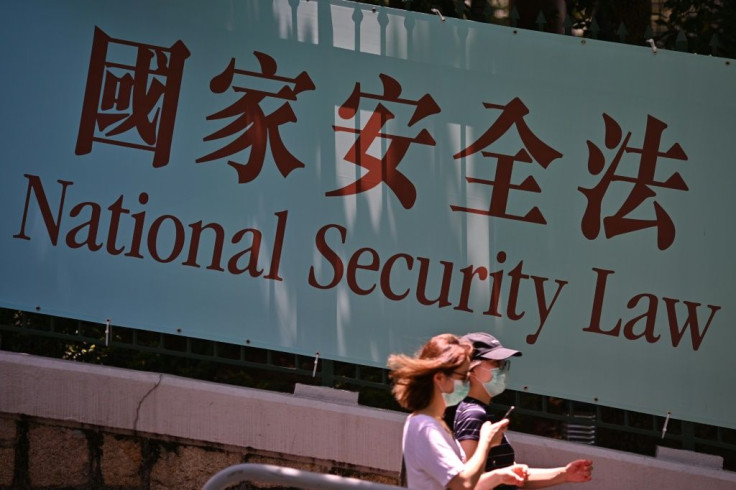Four Hong Kong Students Arrested Over Social Media Posts Under New Security Law

The Hong Kong police arrested four students for social media posts and accused them of “suspected secessionist offenses,” bringing the total number of arrests under the new national security law to 14. Though the police did not disclose the names of the arrested persons or suggested any political affiliations, an activist group, Studentlocalism, said its former leader, Tony Chung, was among those arrested.
The arrested persons - three males and a female - are between the ages of 16 and 21. They have been charged under Articles 20 and 21 of the new national security law that deal with secession, CNN reported Wednesday.
Studentlocalism had ceased operations in the city because of the new laws but said overseas activists would continue their efforts.
HK Police spokesperson Lee Kwai-wah said in a press conference Wednesday that the student-led group had "posted about the establishment of a new party that advocates Hong Kong independence on social media."
"We have to enforce the laws even if the crimes are committed on the internet. Don't think you can escape from the responsibility in cyberspace and commit crimes,” he said.
The group had published a post on Sunday with the title “Counter Chinese Nationalism, Build Hong Kong Nationalism." It contained links to the Facebook page and recruitment forms for the "Hong Kong Studentlocalism U.S. Division."
The U.S. page said it was "committed to push forward Hong Kong nationals' path of regaining our right of self-determination and push forward Hong Kong's path towards independence."
The arrests brought a widespread online response questioning the Hong Kong government's defense of the new laws as necessary to protect national security and the promise of Chief Executive Carrie Lam’s government that the new laws would affect a “tiny number” of people.
"So, students are arrested because of a social media post? How vulnerable a country is to be afraid of a post by a group of teenagers?" Nathan Law, a prominent Hong Kong activist who fled the city earlier this month, wrote on Twitter.
The China director for Human Rights Watch, Sophie Richardson, called the arrests a "gross misuse of this draconian law (makes it) clear that the aim is to silence dissent, not protect national security." She also expressed "chilling concerns of a broader crackdown on political parties" as September's legislative elections approach.
In a move unrelated to the arrests, law professor Benny Tai, a longtime activist and leader of the 2014 Umbrella Movement protests, was fired this week by the Hong Kong University (HKU). He said the laws and his ouster marked the "end of academic freedom" in the city.
Secession is just one of the offenses under the new National Security Law that can land someone in jail. Offenses described as “grave” can result in a sentence of 10 years to life imprisonment while lesser offenses will carry penalties of three to 10 years. The other offenses include criminalized subversion, terrorism, and collusion with foreign forces.
© Copyright IBTimes 2025. All rights reserved.





















